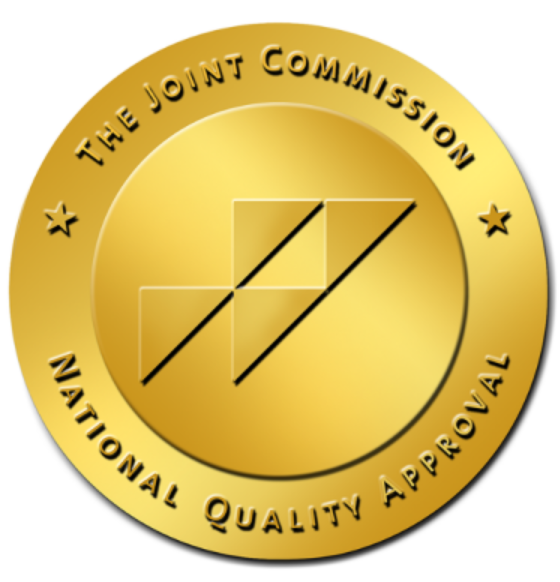Drug Detox in Los Angeles
What Is Detoxification?
Detoxification is a medical procedure of the body being purged of the drugs and alcohol within it. A detox’s objective is to safely control withdrawal symptoms when a person suddenly stops consuming alcohol or drugs.
Each patient’s experience with the detox will differ. What type of drug and how long they were used will affect what the detox will be like. Medications used during drug detox can also be administered to help patients with their withdrawal symptoms. Even after detox, it can take weeks or months for the withdrawal symptoms to disappear.

The amount of time withdrawal symptoms will occur depends on several factors which include:
- Type of substance in which was abused
- Duration of the addiction
- Severity of the addiction
- Method of consumption
- The number of drugs or alcohol used one time
- Family history
- Genetics
- Medical health
- Underlying mental health disorders
The Detoxification Process
Each detox will be different, and the drug detox process will help the addicts receive personalized treatment. In most situations, the process will involve three steps which include:
Evaluation
- The medical team will screen the patient for any physical and mental health disorders. The doctors will conduct blood tests and measure the number of substances in the patient system. This will help in determining the level of medications required. The doctor’s review of the drugs used and the psychiatric and medical examination will be performed to provide the patient’s treatment plan.
Stabilization
- The next will be to stabilize the patient with psychological and medical therapy. The mission of stabilization is to counter any forms of harm to the patient. Doctors will prescribe addiction treatment medications to prevent complications and reduce withdrawal symptoms.
Prepping for treatment
- The last stage of the detox process is to prep the patient for the treatment program. The doctors will educate the patient with the customized treatment plan and what to expect. Residential treatment programs will offer the best chance of success after detox is completed.
Detox Side Effects
The detox process can be painful and dangerous, but it is also vital. A medically supervised drug detox allows patients to purge the drugs and alcohol from the system in a comfortable and safe environment. The round the clock supervision of a medical treatment team makes the difference between inpatient and outpatient treatment.
A medically supervised detox helps to prevent any dangerous complications from during the withdrawal process. Although a medical detox will limit the withdrawal symptoms, some are unavoidable.
Some of the more common withdrawal symptoms during drug detox include:
- Anxiety
- Body pain
- Difficulty focusing
- Insomnia
- Mood swings
- Nausea
- Poor sleep
Detoxing by Substance Type
Benzodiazepines and Alcohol
These drugs carry similar withdrawal syndromes because of their similar mechanisms. Withdrawal symptoms from benzodiazepines and alcohol include:
- Agitation
- Anxiety
- Hallucinations
- Seizures
- Tremors
Opioids
Withdrawal symptoms from prescription opioids include:
- Bone and joint pain
- Gastrointestinal distress
- Increased pain sensitivity
- Muscle aches
Stimulants
Withdrawal symptoms from stimulants could cause mental health complications which include:
- Depression
- Suicidal feelings
Marijuana
Marijuana has been proven to be addictive and can also cause discomfort when usage stops. Withdrawal symptoms from marijuana include:
- Aggression
- Anxiety
- Depression
- Physical symptoms like fever, stomach ache, sweating, and tremors
Bath Salts
Bath salts can produce various uncomfortable symptoms when going through the detox process. Withdrawal symptoms from bath salts include:
- Depression
- Paranoia
- Sleep disruptions
- Tremors
Ketamine
Withdrawal symptoms from ketamine include:
- Anxiety
- Depression
Regardless of the substance used, drug detox at a medical facility is the safest choice, especially when co-occurring mental health disorders are involved. In some events, withdrawal symptoms could lead to severe health issues and complications that demand immediate medical attention.
Due to this reason, it’s highly recommended that patients do not attempt detox at home when severe substance abuse and addiction difficulties are present. Instead, enlist the help of an inpatient medical detox center in Los Angeles that provides round the clock medical supervision and a follow-up treatment program.
Different Detox Methods
There are a few different ways to detox. The different types of substances abused and the patient’s withdrawal symptoms will influence which detox type is suitable. Some choices include:
Inpatient detox center in Los Angeles
- In most circumstances, an inpatient drug detox center in Los Angeles is suggested to help patients manage withdrawal symptoms, prevent relapse, and ensure medical supervision in case of an emergency. Most detox programs are conducted in an inpatient setting. Some stand-alone programs will provide the patient with a transfer to a continuing substance abuse treatment program. Other after detox options are combined with an inpatient addiction treatment program that addresses their addiction at its core.
Outpatient detox center in Los Angeles
- Outpatient treatment programs are rarely recommended, but they could be an option for relatively less severe addictions. Periodic check-ins with the treatment clinic and prescription medications can contribute sufficient detox care. For those where the money is tight, or the patient must continue with school, work, or home obligations, an outpatient detox center in Los Angeles could be ideal.
Duration of a Detox
Reports have stated that a medical detox for substance abuse and addiction will continue until the withdrawal symptoms decrease enough to where the patient is stabilized mentally and physically.
Additionally, to manage the patient’s withdrawal symptoms, detox prepares the patient mentally and physically for the next step, a substance addiction treatment counseling and therapy program.
In some circumstances, antidepressant medications may be used for co-occurring mental health disorders like depression. Depression is a common symptom for patients with addiction to stimulants like methamphetamines or cocaine and opioids like prescription painkillers and heroin.
Patients suffering from psychiatric disorders can benefit from antidepressants to help stabilize them. Attaining a stable dosage of those medications can help prepare patients to begin working on their addiction and allow them to focus on their recovery.
Sometimes, patients will attempt detox several times. Reasons could be they didn’t complete their first round of detox or if they had relapsed. But even when relapse occurs, the only way to obtain complete sobriety is through completing detox.
Addiction Treatment Therapy
Detoxing alone does not equate a completion of a substance addiction treatment program. In most cases, pre-existing psychological effects due to grief, trauma, violence, and significant life changes like loss of employment and divorce can increase addiction risk. These issues must be handled during therapy sessions once the withdrawal symptoms have been relinquished, and the toxins of substances are no longer in the body.
Efficient substance addiction treatment therapies include:
- Personal therapy- This form of therapy allows underlying issues to be addressed.
- Family therapy- Family members can help the effectiveness of treatment. Therapy that discusses issues at home can increase the chances of sobriety.
- Medical services- For co-occurring disorders or chronic illnesses, proper medical aid can help patients avoid self-medicating with alcohol and drugs.
- Education sessions- Studying alcohol and drug effects on the body and brain can help patients avoid relapse.
- Relapse prevention- Designing a plan of action to perform when faced with the cravings and triggers can increase the probabilities of avoiding relapse.
- Life skills groups- People struggling with addiction can discover how to function and keep up with everyday duties to feel more in control and less likely to use substances again.
Substance Addiction Treatment Benefits
Substance addiction treatment programs offer many benefits, which include:
- Psychiatric care- Many patients suffering from substance addiction also have co-occurring mental health disorders. A quality rehab program can treat mental health disorders like anxiety, bipolar disorder, depression, and schizophrenia.
- Individualized treatment plans- Upon entering rehab, the severity of the patient’s dependence is evaluated, along with any co-occurring physical or mental health conditions. This evaluation allows the treatment team to design a recovery plan that caters to the patient’s specific needs.
- Medicine maintenance- Patients receive continuous pharmacological interventions to deal with problematic symptoms while receiving substance addiction treatment.
- Aftercare planning- Once the patient completes their treatment program, the rehab team will draw a plan to resume treatment. This plan usually involves recovery programs like 12-step meetings, support groups, sober living homes, intensive outpatient treatment, individual therapy, and partial hospitalization program.
- Individual therapy- Patients sit individually with a therapist to address their underlining cause of addiction while developing coping skills.
- Group counseling- Patients acquire social skills while sharing their addiction experiences with a group of peers who are also practicing sobriety.
- Drug education classes- Patients are educated on how drugs and alcohol affect the body and mind both short and long term.
- Life skills classes- These courses are designed to help patients in recovery grow self-sufficient when they complete treatment by equipping them with the coping skills they need.
Create Recovery Center Can Help with Detox
If you or a loved one is suffering from substance addiction and is inquiring into a detox center in Los Angeles, we can help.
Here at Create Recovery Center, we partner with detox centers in Los Angeles and provide referrals. It isn’t easy to find the best detox center on your own; therefore, obtaining the services of Create Recovery Center can sponsor the specific addiction’s best detox options.
Addiction is a severe disease that won’t disappear without the help of treatment. Contact us today at Create Recovery Center and allow our team of specialists to refer you to the best detox center in Los Angeles.





